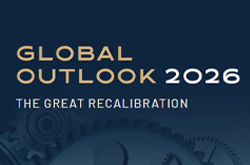From monetary tightening to energy tightening?
Monthly House View - August 2022 - Download here
Will summer be as hot on the markets as it is on the beaches and in our suffocating cities?
Although we have now entered the low gas-consumption period of the year in which our gas stocks are generally replenished, the fear of a Russian shutdown has added another source of stress for markets already marked by the context of stagflation and monetary tightening. Even if the closure of the Nordstream 1 pipeline was only temporary, this event reminds us of Europe’s dual geopolitical and industrial vulnerability. While Russia has no interest in depriving itself of its inflows of foreign currencies, it has a sword of Damocles against Europe, a weapon of energy dissuasion that should continue to be wielded and that also conveniently helps to keep energy prices high.
This new saga maintains and amplifies a scenario of stagflation that has now become consensual. In reality, economists and investors are essentially weighing two scenarios for the Euro Area: a strong slowdown scenario with the possibility of a limited contraction of GDP over one or two quarters, and a more severe scenario with an entry into recession at the end of 2022 or beginning of 2023. The tipping point between these two scenarios lies precisely in whether or not gas supplies are maintained. Such a scenario should help keep inflation high until the spring of 2023, with (a perhaps slower) easing in inflation next year. It is important to note that two-year inflation expectations are now much higher in Germany than in the US. What a change in reality after a decade of near-zero inflation in Europe!
This context makes the task of the European Central Bank (ECB) even more complex, as it is caught in a dilemma between fighting inflation and managing the risk of fragmentation. Rationally, this should lead it to reverse the doxa that prevailed until recently in Frankfurt (ending asset purchases and then a moderate and very gradual rise in rates).
Indeed, in this context, it now seems more appropriate to raise rates quickly into positive territory while continuing asset purchases to combat the rise in sovereign risk premiums. This was confirmed by Christine Lagarde at the 21 July press conference.
Paradoxically, this darkening of the macroeconomic outlook has not yet translated into a lowering of corporate earnings expectations, which usually tend to adjust with some delay. This is one more element to add to the long list of divergences in this atypical regime. For the moment, messages from company management remain surprisingly confident on the resilience of their results, both in terms of order books and margins, with a significant ability to pass-through cost increases into prices. However, this should give us cause for concern on two counts. Firstly, because it confirms the formation of a price spiral (the pricing power of companies was a good inflationary signal in 2021). Secondly, the weakening of the growth trend and the fall in purchasing power will inevitably have an impact on sales volumes, with consumer goods and retail sectors on the front line.
After the shock caused by the conflict in Ukraine at the end of February, equity markets went from a correction triggered by the rise in long term rates to a valuation adjustment (April correction) caused by fears of recession (June correction), and the issue for the summer is whether it is now margins and balance sheets that will now move to the top of the list of concerns. This only strengthens our conviction, held since May, in high Quality stocks, and the return to profitable technology stocks and certain Defensive sectors, after having favoured Value since the beginning of 2021. Dividend stocks also continue to do well as investors look for above-inflation returns.
Monthly House View, 22/07/2022 release - Excerpt of the Editorial
August 01, 2022




